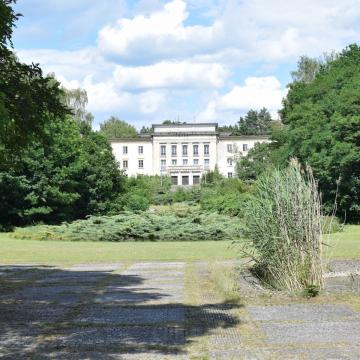The Leibniz Centre for Contemporary History Potsdam (ZZF) is involved in various exhibition and website projects aimed at a broad public. Currently, these include the following Collaborative Projects:
Public History | Projects

Collaborative Project on the Bogensee site: Lecture building of the FDJ Youth College, 2016, Photo: Martin Schmitt / ZZF Potsdam
